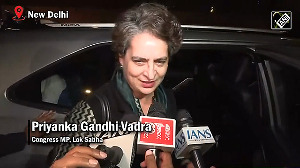Fringe benefit tax is not the sole reason why insurance companies are losing out on the group insurance business. With the market having been squeezed even more as some corporate entities chose not to renew their group covers, insurance players are offering even lower rates to win businesses.
The competition has become so intense that some of the private players are willing to waive off exit loads on group gratuity and superannuation. The group insurance business essentially comprises of gratuity, superannuation and pure-term life protection for a specified employer-employee group.
While the group term has always been highly competitive, of late group gratuity and group superannuation have seen equally finer pricing. Industry figures show an overall growth of 100 per cent in terms of the number of group policies sold at Rs 14,747.01 crore (Rs 147.47 billion) in June 2005. However, in terms of premium income, the group insurance business has fallen by 25 per cent.
"When we started writing the group business, we were charging 100-150 basis points of the total group funds under the plan," said K S Gopalakrishnan, appointed actuary, Birla Sun Life. Since then with a greater number of players entering the group business, rates have fallen to 40-70 basis points, making business unviable.
Birla Sun Life has seen a drop of 79 per cent in its group business during the first quarter of 2005-06. "We want to continue to be aggressive, but remain not exposed to unviable business," said Nani Javeri, CEO, Birla Sun Life.
ICICI Prudential Life, on the other hand, has seen its group business grow by 73 per cent, though it contributes less than 5 per cent to the overall premium income. "We have been able to pick up considerable group business as many corporate entities, which used to look after their own superannuation funds, have now decided to outsource the same to us," said Shikha Sharma, CEO, ICICI Prudential Life. Bajaj Allianz Life Insurance has seen a magnificent rise of 556 per cent in group premium income to Rs 5.58 crore (Rs 55.8 million).
ING Vysya, AMP Sanmar, SBI Life, HDFC Standard Life and Aviva have also seen a growth of 305 per cent, 256 per cent, 59 per cent, 534 per cent, and 62 per cent, respectively.
According to S Krishnamurthy of SBI Life Insurance, "We are not much into superannuation business, so we have hardly been affected by FBT." SBI Life focuses more on group term. The largest life insurer the Life Insurance Corporation of India has seen a 33 per cent drop in group premium income.
The premium collected for the first quarter of 2005-06 stood at Rs 597.41 crore (Rs 5.97 billion) as against Rs 889.59 crore (Rs 8.9 billion) last year. K Sridhar, managing director, LIC, said the business has fallen on account of corporates not renewing their policies on account of FBT.
Tata AIG, Kotak Mahindra Old Mutual, Max New York and Metlife have also seen a fall in their group business by 11 per cent, 71 per cent, 25 per cent and 66 per cent, respectively.
Some corporates have put on hold their superannuation plans for employees, said Venkatesh Mysore, managing director, Metlife.






